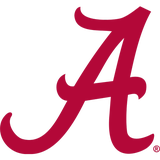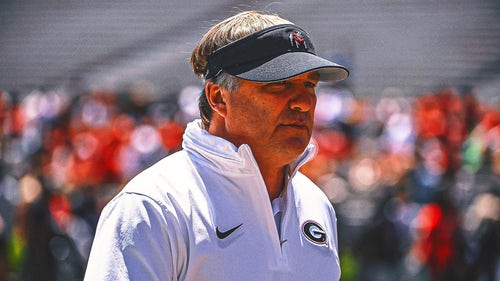
Mailbag: Should Clemson fans assume Dabo Swinney's 'Bama-bound?

OK, first things first.
Stewart,
Your last mailbag was Jan. 20. What gives? What's your offseason mailbag schedule?
-- David Grubin, Phoenix, Arizona
Signing Day and Bracketology got in the way the past two weeks, and it could be a while before I can return to a regular schedule. An impending and exciting family event will keep me out of action for at least a few weeks.
But I figured I'd at least squeeze in one more edition before heading to the hospital.
Are we now seeing the effect of Texas A&M's move to the SEC on the recruiting field? Oklahoma only signed three recruits from Texas. It did not appear that Texas had good class until Signing Day. New recruiting juggernaut Ole Miss signed five kids from Texas, and Alabama signed four. I know one year doesn't make a trend and some of those SEC schools are brand names, but if I was a fan of a Big 12 school, should I be worried?
-- Forest, Montesano, WA
You should absolutely be worried if you're a Big 12 fan. I don't think those numbers are as simplified a cause-and-effect as "Texas A&M joins SEC/SEC starts poaching Texas recruits," but there's definitely a larger trend at play.
Among that state's Top 25 prospects in the class of 2011, as ranked by Scout.com, only three signed outside of the state and/or outside the Big 12. Five years later, 13 of the 25 signed outside the Big 12, and only one of those signed with A&M. Remarkably, Ole Miss signed more four- or five-stars from Texas than Oklahoma did. All of this continues a larger talent drain in the Big 12 that Jon Solomon of CBS Sports recently chronicled; that conference has seen a substantial dropoff in both the rankings of its incoming recruits and its number of NFL Draft exports.
There are simply too many factors at play to say how much of this is the A&M-to-the-SEC effect. You also had recruiting juggernaut Texas go through several corresponding years of mediocrity and coaching upheaval. You had the Big 12 lose one of it most prominent brands in Nebraska and one of its most successful programs in Missouri. The SEC poured more and more money into its assistant coaching pool and thus can hire better recruiters. And most of all, the brand power the SEC has cultivated over the past decade likely took many years to displace childhood and family allegiances to in-state and Big 12 schools.
I will say, at the time of the SEC-A&M marriage, I was very skeptical of seeing any tangible bump from SEC schools occasionally playing a game in Texas. I was wrong. Four years later, that conference clearly carries as much if not more pull among elite recruits in that state as the league in which Texas, Texas Tech, TCU and Baylor compete. That does not bode well for the Big 12 going forward.
Should Clemson fans start preparing for the inevitable and just enjoy the ride while it lasts? For those not familiar with Alabama football, I'm referencing Dabo Swinney's eventual departure to Tuscaloosa upon Nick Saban's retirement.
-- Stephen, Huntsville, Ala.
That probably seems pretty straightforward today, what with Swinney coming off a national title game appearance and his stock never higher, and with Saban's long-time heir apparent, Kirby Smart, off to Georgia. And I do believe Swinney's home-state school and alma mater is the one he's most likely to leave Clemson for. I don't think even the most ardent Tigers fan could deny that.
But how often do these marriages made in heaven actually come to pass? Urban Meyer/Ohio State and Jim Harbaugh/Michigan were perfect storm homecomings. Mark Richt-to-Miami would not have happened in any other year. Meanwhile, many once assumed Les Miles would be coaching Michigan, Jon Gruden would take the Tennessee job (among many others), Chris Petersen would leave Boise State only for Oregon, Penn State alum Al Golden would succeed Joe Paterno and Virginia Tech's Frank Beamer would pass the torch to longtime DC Bud Foster. None of those things happened, and some now seem preposterous.
With coaching changes, it's all about timing. If Saban calls it quits in a year that Swinney takes his team to the mid-January national title game, Alabama may not be willing to wait that long to select his replacement. If Lane Kiffin stays long enough to win two more national titles, does Alabama come to embrace the idea of giving him the job? Or what if last season turns out to be Swinney's peak? If he goes 8-4 the next two years, Alabama fans will no longer be interested.
The sooner Saban retires, the more likely it is to happen, but Saban appears in no hurry to call it a career.
Stewart, how do you view the SEC's attempt to stop Michigan's plan to hold a spring break practice in Florida? Do they have an argument, or are they simply trying to stop a top coach from holding a recruiting show in their own backyard? I would think that if it is a problem, it would be the NCAA that would be stopping this, not a conference.
--Robb Miethaner, Buffalo
Addressing the last part first, most NCAA legislative changes originate from a specific conference, and in fact in this instance, SEC commissioner Greg Sankey is trying to take advantage of a relatively new NCAA concept. He's asking the football oversight committee -- which just came into existence last year -- to essentially address this as a pressing emergency in order to subvert the regular, often years-long rule making process. It's probably not realistic they'd take action before March, but theoretically could issue some sort of edict for next year.
I've known Sankey for some time, and while certainly he, like the other commissioners, is obliged to protect his own conference's interests, he's also a bit of an NCAA governance wonk. The broader concern he's raising is a valid one; it's hypocritical for the major conferences to be purportedly addressing athletes' time demands while requiring 100-plus football players to sacrifice their spring break. Mind you, lots of spring sports teams -- not to mention NCAA tourney basketball teams -- already do just that every year. But we're talking about practice, man. Practice.
So basically, two corresponding motives are at play here. I don't doubt Sankey's sincerity in addressing the time demand issue, but let's not kid ourselves. He's also hearing from coaches and ADs furious that Jim Harbaugh can hold a recruiting open house at one of the most important high schools in the South. And he's trying to appease both.
Stewart: Post-Signing Day, Gator fans are divided into two camps. The optimistic camp says that the Gators signed a solid class that fills huge needs (QB, WR, K) and that Jim McElwain has earned the benefit of the doubt with some of the under-the-radar three-star recruits. The pessimistic camp argues that the class lacks the kind of elite talent that forms the core of dynasties and doesn't close the gap with elite competitors like Alabama, LSU and FSU. Which side is closer to the truth?
-- Andrew, Boulder, Colorado
Put me in the pessimistic camp.
Mind you, Scout.com ranked Florida's class No. 10 in the country. On the surface that's far from worrisome. Other services, though, pegged the Gators closer to 15th. While that's mostly a symbolic distinction, it does say something. Florida is a program that regularly signed Top 5 classes (including a couple that garnered a No. 1 crown) under Urban Meyer, Will Muschamp and even Ron Zook. First-year coaches at a powerhouse programs often sign monstrous classes in their first full cycle after storming into town and drumming up excitement. I fully expected McElwain would do exactly that and was surprised at the Gators' relatively modest close.
But rest assured, your optimistic crowd has plenty to feel good about. Florida desperately needs to upgrade its offensive skill talent, and McElwain loaded up on that side of the ball. Most notably, by bringing in three quarterbacks -- two recruits and Purdue grad transfer Austin Appleby -- he feels comfortable moving Treon Harris to receiver. And between the staggering 12 early enrollees and three jucos, plenty of guys in this class should be able to play right away.
But seeing several big names either flip or choose elsewhere on Signing Day had to sting. While it's still a solid class, as you said, plenty of other schools in Florida's conference and state signed even better ones. Florida likely upgraded its roster, but it did not exactly make a huge statement.
Love the podcast. My question is: Do grown men realize how creepy it is to stalk 17-/18-year-olds on Twitter and then have breakdowns over where a kid goes to school?
-- Jacob Morrison
What you call "creepy," people who obsessively follow recruiting call "Tuesday."
If you could hand pick your fantasy league coaching staff as an AD, who would be your all-star staff starting with head coach all the way down to the video coordinator? The rules are they have to have held the same position in 2015 (HC, DC, OC, etc)
Ben, Atlanta
This is a fun game -- though I'm not equipped to rank video coordinators. Maybe next time.
Head coach: Nick Saban, Alabama. Not that he's the only guy I'd feel confident about, but if you're saying a five-time national champ is available, I'm taking him.
Offensive coordinator: Lane Kiffin, Alabama. If I'm going to hire a pro-style coach, then that limits my pool of potential OCs; Kiffin has shined under Saban.
Offensive line: Mike Bloomgren, Stanford. He'd also be a fine OC choice, too, but as a position coach Bloomgren just keeps churning out NFL offensive linemen.
Running backs: Gary Campbell, Oregon. He's been doing it for 32 years, coaching Jonathan Stewart, LaMichael James, Royce Freeman and many more.
Receivers: Tee Martin, USC. In four seasons he's coached four All-Americans: Robert Woods, Marqise Lee, Nelson Agholor and JuJu Smith-Schuster.
Defensive coordinator: Bud Foster, Virginia Tech. This past season was not his finest unit, but his body of work over the past two decades is off the charts.
Defensive line: Craig Kuligowski, Miami: His accomplished Missouri proteges included Kony Ealy, Shane Ray, Michael Sam, Aldon Smith and Markus Golden.
Linebackers: Brent Venables, Clemson. This is more to get Venables' defensive expertise; he's doubled as a linebackers coach at both Oklahoma and Clemson.
Secondary: Harlon Barnett, Michigan Sate. The Spartans' scheme puts tremendous onus on their DBs, which Barnett excels at developing.
Special teams: Sean Snyder, Kansas State. The Wildcats almost always have a reliable kicker/punter and stud return guy (Tyler Lockett, Morgan Burns).
There are many, many other names I considered that you will surely write in aghast that I excluded. And that's good. I'll need to replace many of these guys next year when they invariably take new jobs.
Stewart, I loved your recruiting rankings myth-buster story. So along those lines, how impressive was it for Houston and Tom Herman to go out and do what they did with the 2016 signing class? Considering their location (a major city in a hotbed state for recruits), but not being a Power 5 team (at this point), could the Cougars make a rise similar to what the Miami program did during the '80s and early '90s and build that program up even further? Is that possible in this day and age?
-- Shawn, Lima, Ohio
What Herman did was astounding. First of all, it's believed to be the highest-rated class (40th on 247Sports.com) ever signed by a non-power conference school in the Internet rankings era. Second, all but one of the guys they signed committed BEFORE the season. So they weren't coming because of the Peach Bowl or beating Florida State; they came because of the vision Herman sold them. Even he could not have imagined how much of that would come to fruition in Year 1.
But unfortunately, no, I don't believe a Miami-level transformation is possible in 2016 unless Houston gets a Big 12 invite. Miami was an independent that could schedule whoever it wanted to and played the big boys. Houston opens with Oklahoma this season, which is great, but most of its games will continue to be against schools like Tulsa and UConn. It needs to go undefeated every year to have any shot at the playoff, and it needs to win its conference every year to go to a better bowl than Miami Beach. A more realistic goal is to try to become the new Boise State, which continues to be widely respected even without major conference affiliation but is frankly no threat to play for the national title.
Finally, it goes without saying that Herman won't be there for long if he keeps winning at a high level. He won't jump for any old opportunity, but he will for Texas or Texas A&M. That doesn't necessarily doom Houston; your example, Miami, made its run with several different coaches. But it will certainly be tougher. The best thing that could possibly happen for Houston is if Herman stays for a couple more years and wins at such a level that it becomes impossible for the Big 12 -- which will expand eventually -- to say no.
In light of Louisville basketball, is it time for the NCAA to stop allowing schools to dish out their own postseason bans? It seems like schools use this to abandon seasons that are already downward spiraling or, perhaps in the Louisville situation, to try and ward off negative recruiting that could impact future seasons.
-- John Hayes, Spokane WA
I'm not sure how you ban the bans, other than take it out of the NCAA punishment equation entirely. Say what you will about Rick Pitino's handling of this story -- like how he's arrogantly trying to deflect blame for a horrible scandal in his own program on anyone but himself -- but his larger point is correct. It's unfair that the NCAA's most common punitive measures mostly punish innocent athletes. That being said, they're punitive for a reason. A postseason ban is a more tangible deterrent to coaches and administrators than a fine they don't have to pay or an in-season suspension. The goal of the sport is to play for championships.
Over the years, the Committee on Infractions has promoted a weird rite of justice where it behooves schools to fall on their sword to mitigate further punishment. Thus, it's better to get that inevitable postseason ban out of the way rather than have the threat of one loom over your program. I do wish there was a mechanism to prevent schools from imposing one once the current season has started, but theoretically, any school can take itself out of contention for any reason. Case in point: Missouri took itself out of consideration for a 5-7 bowl berth last year.
So the only real way to prevent this from happening were if the committee stopped accepting self-imposed in-season bans as an acceptable punishment.
Stewart: Berry Tramel of the Daily Oklahoman wrote during the Big 12/SEC basketball challenge how cool it would be to do the same thing in football. I think he's on to something. The only thing standing in the way is the fact you can't qualify for the CFP by JUST winning your conference. So playing two to three marquee non-conference games is too risky for a school with true CFP aspirations. Can you see this type of arrangement working WITHOUT an expanded playoff that includes automatic conference champs?
-- Joel, Ponca City, OK
I would be all for it -- heck, I proposed the same thing -- but it's not likely to happen. And it's not entirely because of the playoff. If anything, the committee thus far has encouraged, not discouraged, scheduling up out of conference.
But scheduling philosophies differ dramatically among schools within the same league, much less across two conferences. Some are scheduling for a possible playoff berth; others are scheduling to get to six wins. Some need big-name opponents to help sell tickets; others can get 100,000 paying customers for a game against Mercer. And some have annual out-of-conference rivalries to protect, which make it that much harder to work around. For example, can you guarantee Georgia it will get a home Big 12 game in years it plays at Georgia Tech? What about Florida with Florida State?
Keep in mind, the Big Ten and Pac-12 actually announced a formal scheduling partnership four years ago only to pull an about face when several member schools balked. Many things have changed since then, from conferences' membership to the formation of the playoff to the changing TV industry. So it's certainly worth revisiting the concept. But given how many 2026-27 home-and-homes I've already seen announced, it doesn't seem like the industry is all that open to changing its scheduling approach.
What is the over/under on the number of years until Harbaugh wins a national title at Michigan?
-- Russell Brandt, Austin, Texas
I'll set it at two years. If he goes over by much, then man did we waste a lot of brain space on satellite camps and spring break.
Thanks as always for the questions, everybody. Follow me on Twitter or Facebook for updates on when the Mailbag will return and/or when I next sleep for three consecutive hours.










